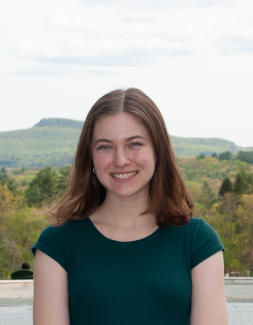Weiss
Alison graduated from Amherst College with a degree in Physics and Computer Science. During college, she gained exposure to several areas of physics. She worked on topological photonics research in Mikael Rechtsman's group at Penn State and on an antihydrogen hyperfine structure measurement experiment at CERN. For her undergraduate thesis, she characterized and mitigated various sources of error on Professor Larry Hunter's long-range spin-spin interaction precision measurement experiment. After college, she spent two years working on electronic design automation software at IBM. She is happy to be returning to AMO physics research as she joins the Kaufman group's strontium tweezer array experiment.



 The Physics Frontiers Centers (PFC) program supports university-based centers and institutes where the collective efforts of a larger group of individuals can enable transformational advances in the most promising research areas. The program is designed to foster major breakthroughs at the intellectual frontiers of physics by providing needed resources such as combinations of talents, skills, disciplines, and/or specialized infrastructure, not usually available to individual investigators or small groups, in an environment in which the collective efforts of the larger group can be shown to be seminal to promoting significant progress in the science and the education of students. PFCs also include creative, substantive activities aimed at enhancing education, broadening participation of traditionally underrepresented groups, and outreach to the scientific community and general public.
The Physics Frontiers Centers (PFC) program supports university-based centers and institutes where the collective efforts of a larger group of individuals can enable transformational advances in the most promising research areas. The program is designed to foster major breakthroughs at the intellectual frontiers of physics by providing needed resources such as combinations of talents, skills, disciplines, and/or specialized infrastructure, not usually available to individual investigators or small groups, in an environment in which the collective efforts of the larger group can be shown to be seminal to promoting significant progress in the science and the education of students. PFCs also include creative, substantive activities aimed at enhancing education, broadening participation of traditionally underrepresented groups, and outreach to the scientific community and general public.